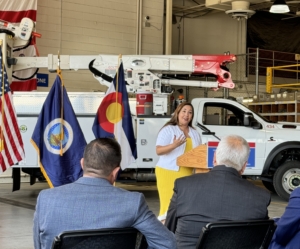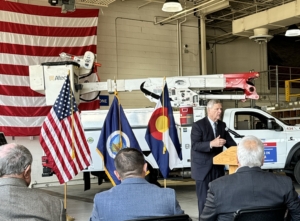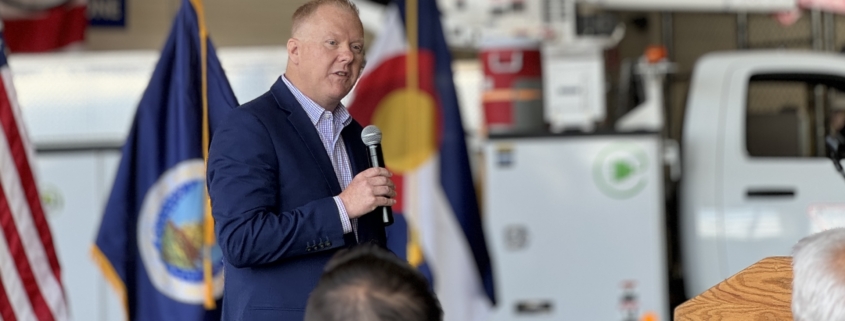Advocating in D.C. for Colorado Co-ops
The Colorado Rural Electric Association spends many hours and resources representing the interests of its member co-ops before the Colorado General Assembly. Each year from January through May, CREA staff and contract lobbyists carefully follow all the legislative proposals considered by our state legislature to determine if they will have any impact on electric co-ops. This is a job that requires our attention 24 hours a day, seven days a week to make sure proposed new laws won’t have any negative impacts on electric co-op members.
In addition to our work at the state level, CREA also works with the national trade association — the National Rural Electric Cooperative Association — to promote and protect the interests of Colorado co-ops in Washington, D.C. While most of the policy action takes place in Colorado, there are many federal initiatives that are relevant to Colorado’s electric co-ops.
In 2021, the United States Congress passed the Infrastructure Investment and Jobs Act, also known as the Bipartisan Infrastructure Law. One of the provisions of that law authorized electric co-ops to apply for grants and loans to help pay for distribution grid projects that will reduce the risk of wildfires and improve the resilience of electric co-op systems. In 2022, Congress passed the Inflation Reduction Act, which included a loan and grant program specifically for electric co-ops. The funds authorized by this law were made available to electric co-ops to help them acquire new generating resources and improve the reliability of their systems.
Colorado’s electric co-ops collectively spent thousands of hours working with the appropriate government agencies and filing applications for these grants and loans. Over the last year or so, CREA’s member co-ops have been extremely successful in being awarded grants and loans that will be administered by the Department of Energy, the Department of Agriculture, and the Department of Homeland Security. These grants and loans provide a historic opportunity for Colorado’s electric co-ops to invest in infrastructure that will serve their members at the end of the line with affordable, reliable electricity for many years into the future.
I recently traveled to Washington, D.C., with a group of Colorado co-op CEOs to meet with our members of Congress to emphasize the critical importance of these loans and grants to Colorado’s electric co-op members. Co-ops serve about 70% of Colorado’s land mass, and any help we can get to keep rates affordable and service reliable is much appreciated.
The grants and loans that have been committed to Colorado’s electric co-ops will benefit thousands of Coloradans, and we urge all officials of the federal government to honor these commitments.
Kent Singer is the executive director of CREA and offers a statewide perspective on issues affecting electric cooperatives. CREA is the trade association for 21 Colorado electric distribution co-ops and one power supply co-op.



 2024
2024